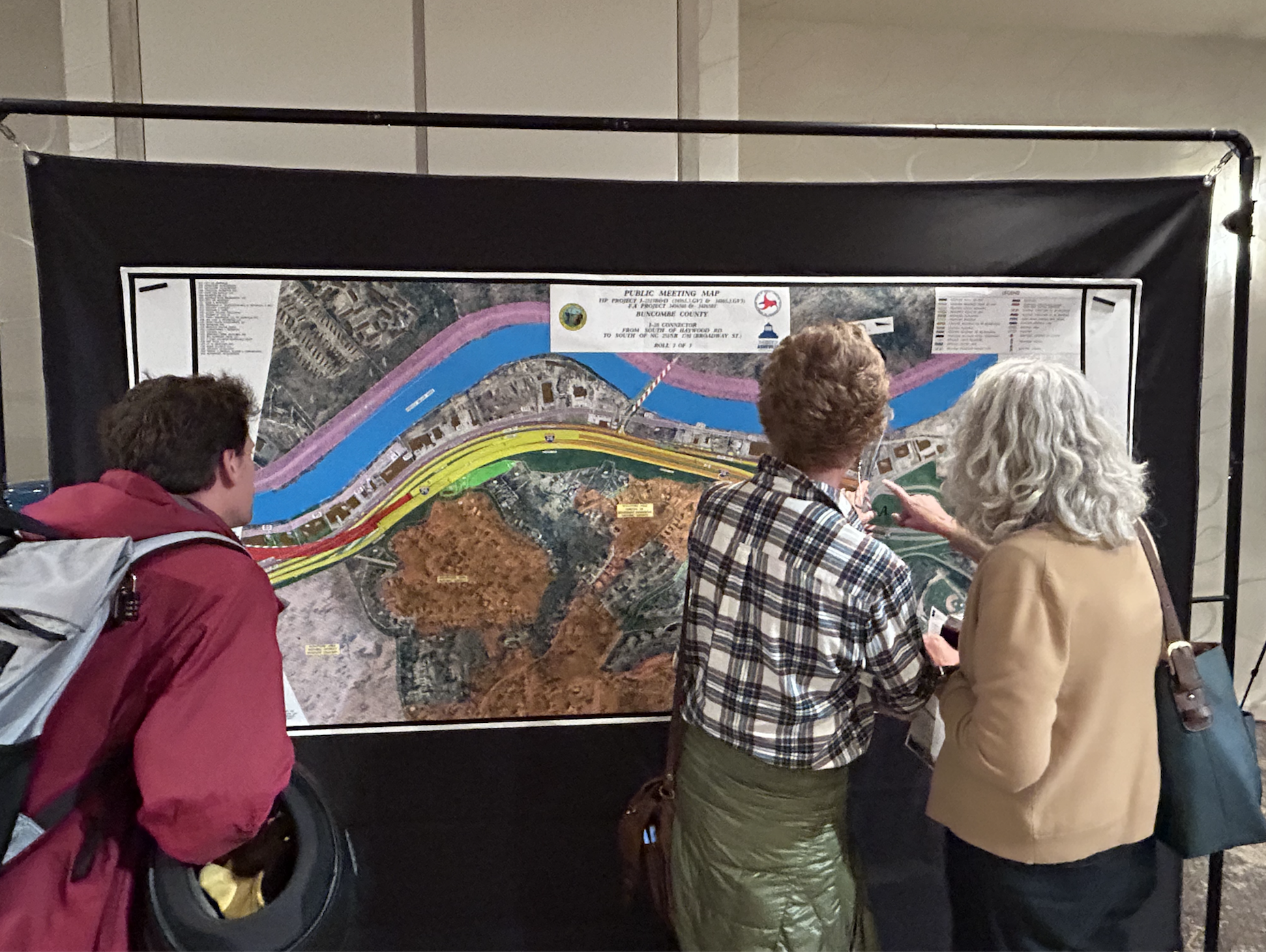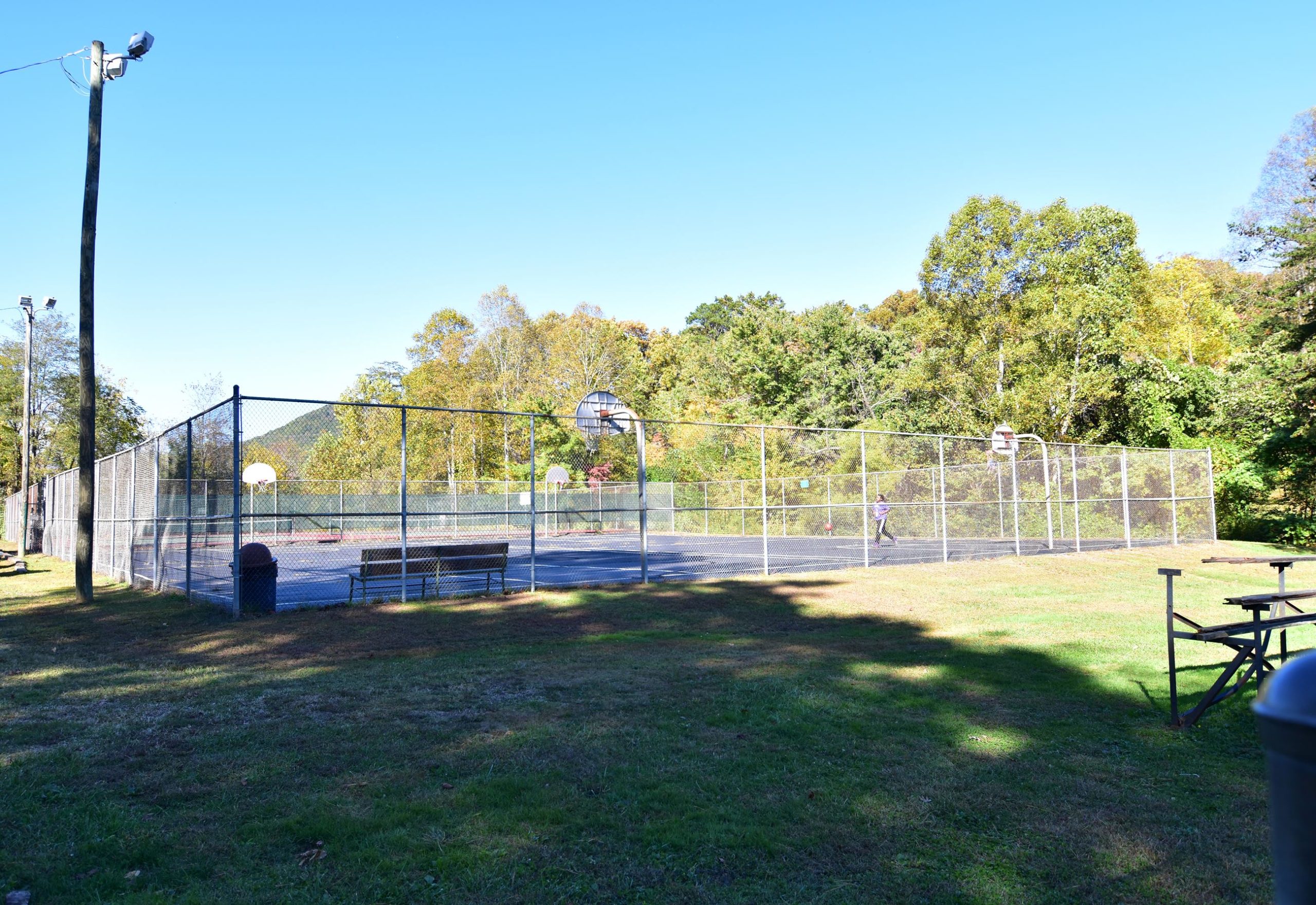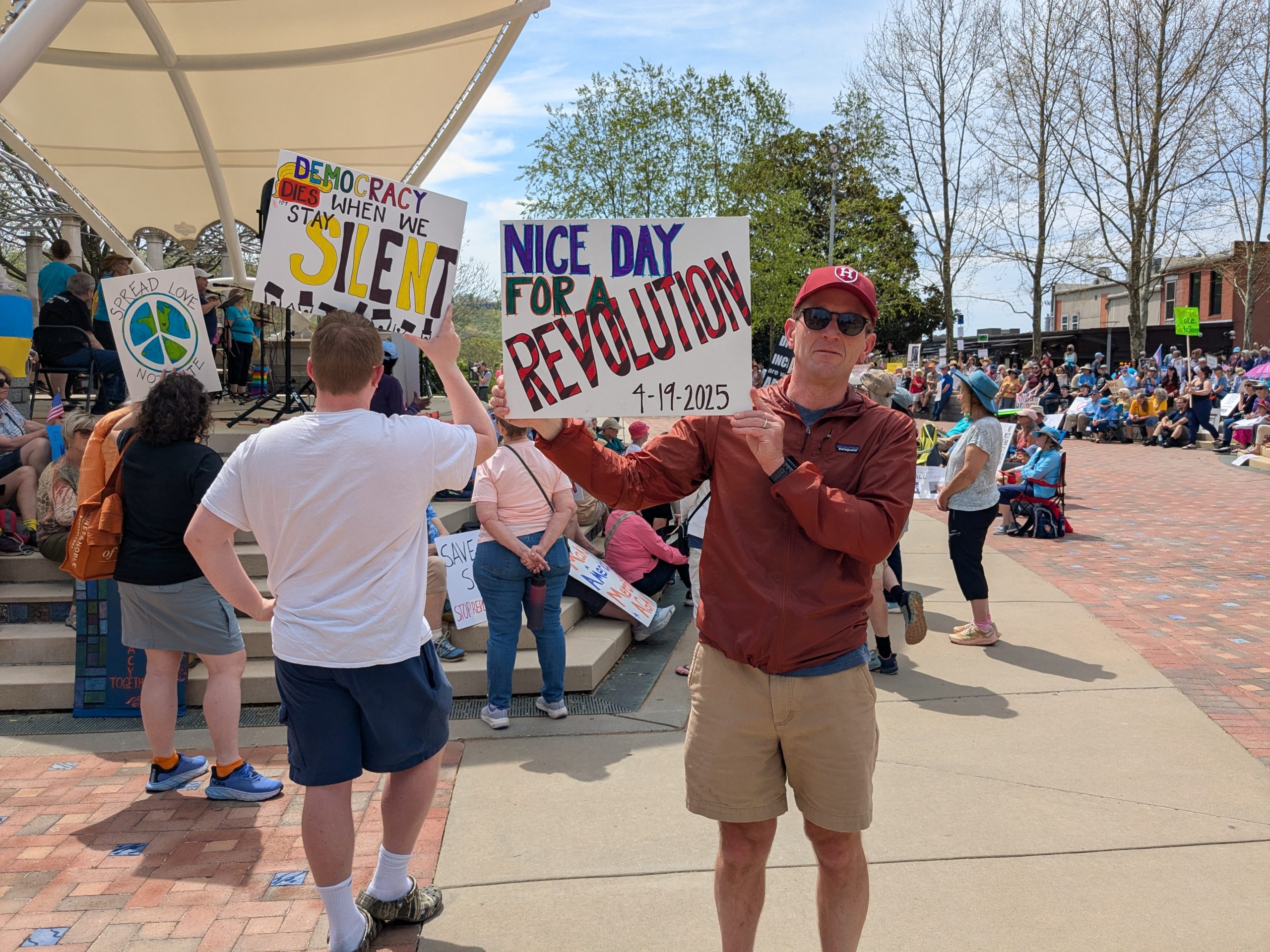After high school, Drew Ball just wanted to play music. But his dad insisted he go to college. Shortly after enrolling at Guilford Community Technical College in Greensboro, his interests expanded into politics and environmental advocacy. His love for music, however, never abated.
In December, Ball was voted in as the newest member of the Buncombe County Board of Commissioners by county Democrats in a basement election to fill an open seat. Despite his win and the newfound responsibilities that come with it, Ball still plays in three bands in addition to his volunteer gig at the Reynolds Fire Department and his full-time job with the Natural Resources Defense Council.
“I just stay up late,” Ball responds when asked how he squeezes it all in. “Live fast — and hopefully die when you’re not too young.”
Ball admits he’s been surprised by some elements of his new county position — such as constituents’ unfiltered passion for school funding and trash pickup — but believes his experiences in politics have helped him hit the ground running as a commissioner.
One of the highlights — which later became a lowlight — of his early career was his stint as a legislative assistant for state Rep. Tricia Cotham in 2007-08 and again in 2016. Back then, Cotham was a Democrat with progressive views, particularly on education, Ball says. He was proud of the work they did.
But in 2023, Cotham famously switched to the Republican Party, delivering a veto-proof supermajority to the GOP. The flip blindsided Ball and would later help inform his decision to put himself up for the County Commission seat, his first elected position.
“I had so much faith in her, and her doing that really just kind of … shook me,” he says.
Since filling the vacated Commission seat created when Amanda Edwards won her election for chair, Ball has stepped into meetings with state and federal officials to advocate for Tropical Storm Helene relief while navigating controversial votes for steep budget cuts in the wake of the natural disaster.
“When it’s hard, I have to remind myself that this is important work,” he says. “I’m uniquely positioned to — I think, I hope — do a good job for the county. But we had eight other folks that wanted this job. So, there’s no time for ‘Woe is me, this is hard.’ Shut up and get to work.”
A life in politics
Originally from Kentucky, Ball grew up in Winston-Salem and frequently visited Western North Carolina with his mom on vacations. After high school, his dad gave him an ultimatum: enroll in college or get booted off the family health insurance plan.
It turns out he liked college, particularly his political science professors, although his views back then were different from what they would later become.
“I thought I was Republican,” he says. But as he got more into politics, he realized his values — protecting the environment, ensuring everyone has a good education and taking care of people in need — were more in line with the Democratic Party.
From Guilford Community Technical College to UNC Greensboro and later N.C. State, Ball made his way through school staying active with college Democrats. He got his first campaign job in 2004 and became the Get Out the Vote director for the Wake County Democratic Party as a senior in college in 2006, leading to several legislative assistant jobs in the state legislature.

He also worked as a lobbyist with the N.C. Sierra Club before moving to Washington, D.C., to earn a master’s degree in public administration from American University. Still, he took every opportunity to travel to WNC, and after Duke Energy spilled toxic-laden coal ash into the Dan River in 2014, he knew he had to get back to his home state.
Like so many recent graduates, Ball tried to make it in Asheville by living with friends and bartending. His 2015 stint at former MG Road lasted only about eight months. Life in Asheville was too expensive then, but he would return in 2019 after he convinced his supervisor at Environment North Carolina that he could do his job from the mountains.
In 2024, when Democratic Party members told Ball he should run for Edwards’ vacant seat, he knew it was his time.
“I was just ready to do the work,” he says.
Schools and trash
Two days into the job, Ball was invited to put care packages together with then-Gov. Roy Cooper at Asheville Buncombe Community Christian Ministry. Ball asked him for advice.
“He kind of looked at me and he’s like, ‘You picked a heck of a time to start serving Western North Carolina.’”
Cooper told him it was going to be really frustrating at times, but if he stuck with his constituents and listened, he’d be fine, Ball recalls.
Ball thinks his experience in Raleigh and Washington has prepared him well to represent the county and help the region maximize the assistance it needs after the storm.
“I’ve been constantly on the phone with our local delegation but also reaching out to other folks in the General Assembly that I know, to say, ‘What are you seeing? What’s happening? What’s going on with the disaster relief package?’” he says.
While storm relief and resilient recovery are the commission’s top priorities in the short and medium terms, Ball says most of the conversations with residents have revolved around schools and trash.
In his first full meeting as commissioner Jan. 23, he voted to approve steep cuts to the county budget to make up for revenue losses related to Tropical Storm Helene, including a clawback of $4.7 million from the public school districts in a hotly contested meeting.
“That was a really, really tough first vote. I thought I was going to throw up after,” he says, noting that his sister is a teacher. Public education “is a great equalizer,” he adds. “It is something I really want to fight for.”
He says commissioners had no choice because protecting the county’s bond rating is what matters, as public funding for schools and all the other county services depends on the county being able to borrow money.
As far as trash goes, Ball says it’s been a tough rollout for new provider FCC Environmental after it took over for WastePro on Jan. 1, especially considering road repair, storm debris and cold winter weather. Ultimately, the service has to improve, he says, and the county will have to start fining the company if it doesn’t.
“We’re kind of the complaint department as commissioners,” he says with a chuckle.
Saying yes
Ball, who has a small farm just outside city limits in Oakley with his fiancée, Meaghan Collins, manages to still find time to play with three rock bands. Two of them — Aunt Vicki, which played at AVL Fest last year, and Sparkle Mountain, a progressive honky-tonk band he has with Collins — can be found around town. His third band, The Riverbreaks, based in Washington, D.C., still tours. He went to Kansas with the group in March.
To squeeze it all in, he commits at least one weekend day a week to commission work in addition to dedicating time each weekday to the role.
“I really want to be everywhere and say yes as much as I can. So, yeah, you know, I’m using vacation days for commission stuff, as opposed to spending days at the beach. I’m happy to do it,” he notes.
He’s committed to being present for residents of Swannanoa and Barnardsville after they got rocked by Helene, even though they’re not in his district, he says. The two communities are unincorporated and therefore don’t have a town council or mayor to advocate for them, leaving county commissioners as their primary local representatives.
He says Asheville City Council member Bo Hess, who was elected in November, recently gave him advice on how to settle into his elected position. Hess told him to just do what he can, try not to get overwhelmed and eventually he’ll find a rhythm. Ball says he doesn’t think he’s quite found that rhythm yet, but he’s getting there.
“I only get two years,” he says. “I’m not promised another four years, so that’s the other reason why I’m working really hard to say yes to everything — [to] try and get as much done as I can.”











